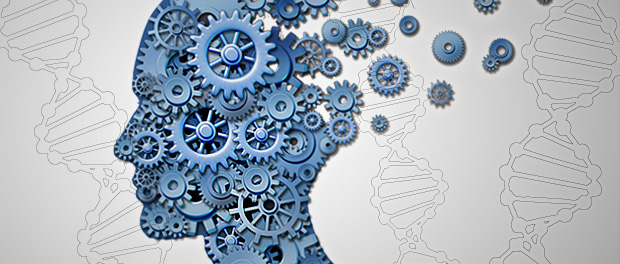
Researchers at the University of Alabama at Birmingham have discovered a potential epigenetic explanation for why individuals with epilepsy, particularly temporal lobe epilepsy, usually experience memory loss. They even propose a way to undo that loss of memory. Published recently in the Annals of Translational and Clinical Neurology, a group of UAB scientists believes their results could progress our understanding of numerous other disorders involving memory loss and could lead to a therapeutic approach for restoring proper memory function via epigenetic mechanisms.
Patients that suffer from temporal lobe epilepsy experience recurrent and unprovoked epileptic seizures that originate from the temporal lobe, one of the four major lobes of the mammalian brain that is involved in processing sensory input, specifically auditory information. Memory loss is a common occurrence for patients who are diagnosed with temporal lobe epilepsy, even if the seizures are controlled effectively with medication. Using a rat model, the group of researchers focused on a specific gene – Bdnf – that produces brain-derived neurotrophic factor (BDNF) protein. It is involved in the formation of memories, along with other important processes such as learning and higher thinking.
The researchers sought to investigate a possible link between DNA methylation and memory loss which occurs as a result of epileptic seizures. DNA methylation is a well-studied epigenetic mechanism known to affect gene expression by turning genes off or on by adding a methyl (CH3) group onto DNA. When a gene is turned off, its specific protein is no longer produced by that gene. When a gene is turned on, the protein is produced as normal. This epigenetic mark can therefore impact how much a particular protein is produced.
Assistant Professor from the Department of Neurobiology, Farah Lubin, Ph.D., explained that people with temporal lobe epilepsy have less DNA methylation of the BDNF gene. This disrupts the gene and prevents it from turning off at the right time. Gene expression then increases and amounts of messenger RNA (mRNA), which carries the instructions of the gene to the brain, elevate according to Lubin. This causes the BDNF protein to be over-expressed, which seems to severely impair the formation of memories in those with temporal lobe epilepsy.
In the rat study conducted by Lubin and her team, it was found that increasing DNA methylation reduced mRNA levels and brought down BDNF protein levels. This led to the restoration of normal memory function. The researchers used an amino acid, methionine (Met), which can be taken as a dietary supplement, to raise the amount of DNA methylation in the hippocampus of the epileptic rats and concluded that methyl supplementation was shown to reverse memory deficits associated with epilepsy.
Specifically, the researchers reported, “methyl supplementation with Met significantly increased hippocampal Bdnf DNA methylation and reduced chronic overexpression of Bdnf mRNA levels observed in the hippocampus of epileptic animals during memory consolidation.”
“What is exciting is that this is the first time we’ve been able to reverse memory deficits in this patient population through a better understanding of DNA methylation,” Lubin said.
This opens up new doors for a more comprehensive understanding of a wide range of memory-related disorders such as various types of dementia including Alzheimer’s disease which, according to the Alzheimer’s Association, an estimated 5.3 million Americans were diagnosed with in 2015. Their results, according to Lubin, indicate that memory loss from epilepsy could be reversible, which may benefit children and others suffering from this disorder.
“Much of what we know about memory stems from studies of an epilepsy patient named Henry G. Molaison, who underwent surgery in 1953 to remove his hippocampi in an effort to treat his seizures. Subsequent studies of his abilities to form long-term memories revolutionized the understanding of the organization of human memory.”
However, despite the success of the current study and the potential future benefits for epileptic patients, Lubin cautions that methionine’s effects on the formation of memories in humans is not entirely understood.
Lubin seems pleased that the very first patient group that could benefit from these discoveries may be epileptic patients, since Henry Molaison and other epileptic individuals have contributed so significantly to the study of memory loss.
Lubin suggests that future studies should similarly focus on DNA methylation, investigating various genes involved in memory formation. Gene editing, a new genetic engineering technology, could also allow researchers to add, remove, or alter DNA. This may help researchers to manipulate DNA methylation levels at a single gene and better study the gene or a specific protein’s function and its effects. She plans to conduct these additional studies thanks to a recently awarded grant from the National Institute of Neurological Disorders and Stroke.
Source: Parrish, R.R., Buckingham, S.C., Mascia, K.L., Johnson, J.J., Matyjasik, M.M., Lockhart, R.M., Lubin, F.D. (2015). Methionine increases BDNF DNA methylation and improves memory in epilepsy. Annals of Clinical and Translational Neurology, 2(4): 401-416.
Reference: Shepard, B. UAB researchers unlock mystery of memory loss in epilepsy patients. UAB News. 5 June 2015.


